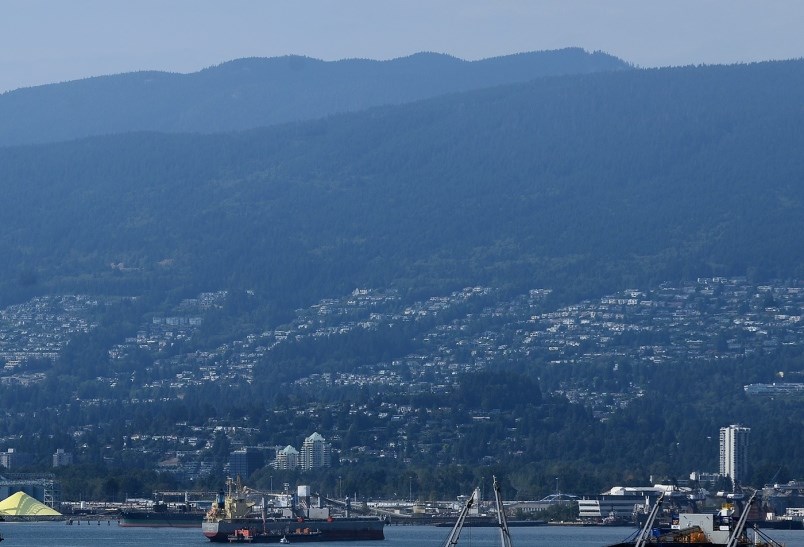While people were rejoicing at the rain and the hope it would clear the air from wildfire smoke – those hopes were dashed Sunday morning with bad air quality news from Metro Vancouver.
Metro Vancouver has issued an air quality advisory for the Metro Vancouver area and the Central Fraser Valley because of “high concentrations of fine particulate matter.”
“Metro Vancouver is continuing the Air Quality Advisory for the Eastern Fraser Valley including Agassiz and Hope because of high concentrations of fine particulate matter,” said a news release issued at 9 a.m. Sunday. “Despite cool and damp weather yesterday and today, smoke from wildfires both within and outside the region has moved into all parts of Metro Vancouver and the Fraser Valley. This has resulted in elevated levels of fine particulate matter that exceeded our air quality objectives throughout the region during the overnight period. Elevated levels of fine particulate matter are expected to persist until there is a change in weather or fire conditions. Fine particulate matter, also known as PM2.5, refers to airborne solid or liquid droplets with a diameter of 2.5 micrometres (µm) or less. PM2.5 can easily penetrate indoors because of its small size.”
On Friday, for the first time in 11 days, this region was officially without an air quality advisory from Metro Vancouver.
Metro Vancouver set a dubious record on Thursday, Aug. 23 for the longest continuous period of days with advisories.
The 11-day window running Aug. 13 to 23 was the longest streak of advisories since the 1980s, when air quality models and projections were standardized. Last year set the record for most air quality advisories, as 19 were issued over 12 months.
This year has seen 18 advisories, and we’re bound to see more given the hundreds of fires still burning throughout the Interior, on Vancouver Island and in Washington State.
The news release warned that people with “chronic underlying medical conditions should postpone strenuous exercise until the advisory is lifted. Exposure is particularly a concern for infants, the elderly and those who have diabetes, and lung or heart disease.”
Peole experiencing symptoms such as chest discomfort, shortness of breath, coughing or wheezing, follow the advice of your healthcare provider.
Metro Vancouver works in cooperation with Environment and Climate Change Canada, Fraser Valley Regional District and B.C. Ministry of Environment and Climate Change Strategy to look after air quality.
Information about real-time air quality readings for Metro Vancouver and Fraser Valley communities can be found at www.airmap.ca and http://www.env.gov.bc.ca/epd/bcairquality/readings/find-stations-map.html. For information about health impacts, go to http://www.vch.ca/public-health/environmental-health-inspections/healthy-built-environment/air-quality/outdoor-air-quality or http://fraserhealth.ca/airquality.
- with files from the Vancouver Courier



